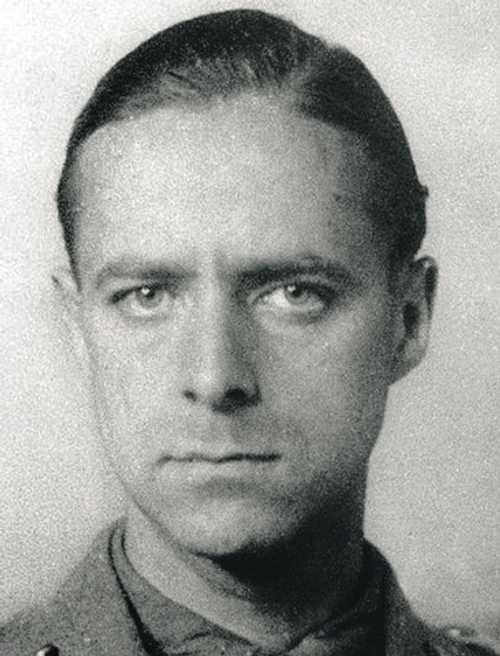
German Forces
Major Joachim Kuhn
fbbrummbar
Having taken part in the invasion of Poland and the Soviet Union, major Joachim Kuhn experienced firsthand the mistreatment of the local population. In 1942, he met Claus von Stauffenberg, who recruited him for the resistance and the two became close friends. In 1943, Kuhn was promoted to major and in the same year he was in charge of hiding the explosives for a planned attack on Hitler’s life during a uniform presentation. In May 1944, he organized the bomb that Stauffenberg was to use on the 15th of July, the first date when he was designated to carry out the assassination. On 20 July 1944, Kuhn spent the day at the Eastern front, waiting for news anxiously from Berlin. A day after the plot failed, he accompanied General Tresckow, the leader of the conspiracy in the East, to inspect the frontline. In reality, Tresckow told him that he was about to commit suicide. Kuhn tried to talk him out of it with no success, and it was him who carried Tresckow’s body back in his car. Kuhn later remembered: "When I was about a hundred yards away, I heard the hand grenades exploding. On my official account of his death by a partisan attack, General von Tresckow was buried with full military honors." The Gestapo issued an order to arrest Kuhn not long after, when they learned about his key role in the coup. When the order reached his commanding officer, General von Ziehlberg, he refused to arrest Kuhn, and told him to go to the front and seek an honorable death. Ziehlberg was later executed in relation to this incident. Kuhn was captured by the Red Army and remained in Soviet custody for the next 12 years. In 1945, he was sentenced to death by the National Socialists as a traitor (in his absence). In 1951, he was sentenced to 25 years of hard labour by the Soviets as a war criminal. His wrongdoing was assumed on his German uniform. During his internment he was subjected to repeated torture and kept under such inhumane circumstances that he developed severe schizophrenia. Upon his return to Germany in 1956, his application for financial compensation was not granted because according to the ‘competent’ authority, he was expelled from the German Armed Forces on 4 August 1944, by the then head of state. Kuhn never publicly spoke about his role in the resistance, never married or had any children. In 1994, he died alone in nursing home near Frankfrurt. Four years later he was rehabilitated by the military court of Moscow, "in the absence of crime in his actions". His honor was also restored in Germany, and he took his rightful place among those who are being remembered today. taken from fb/German resistance 1933-1945
2345 Views
8/25/2020
